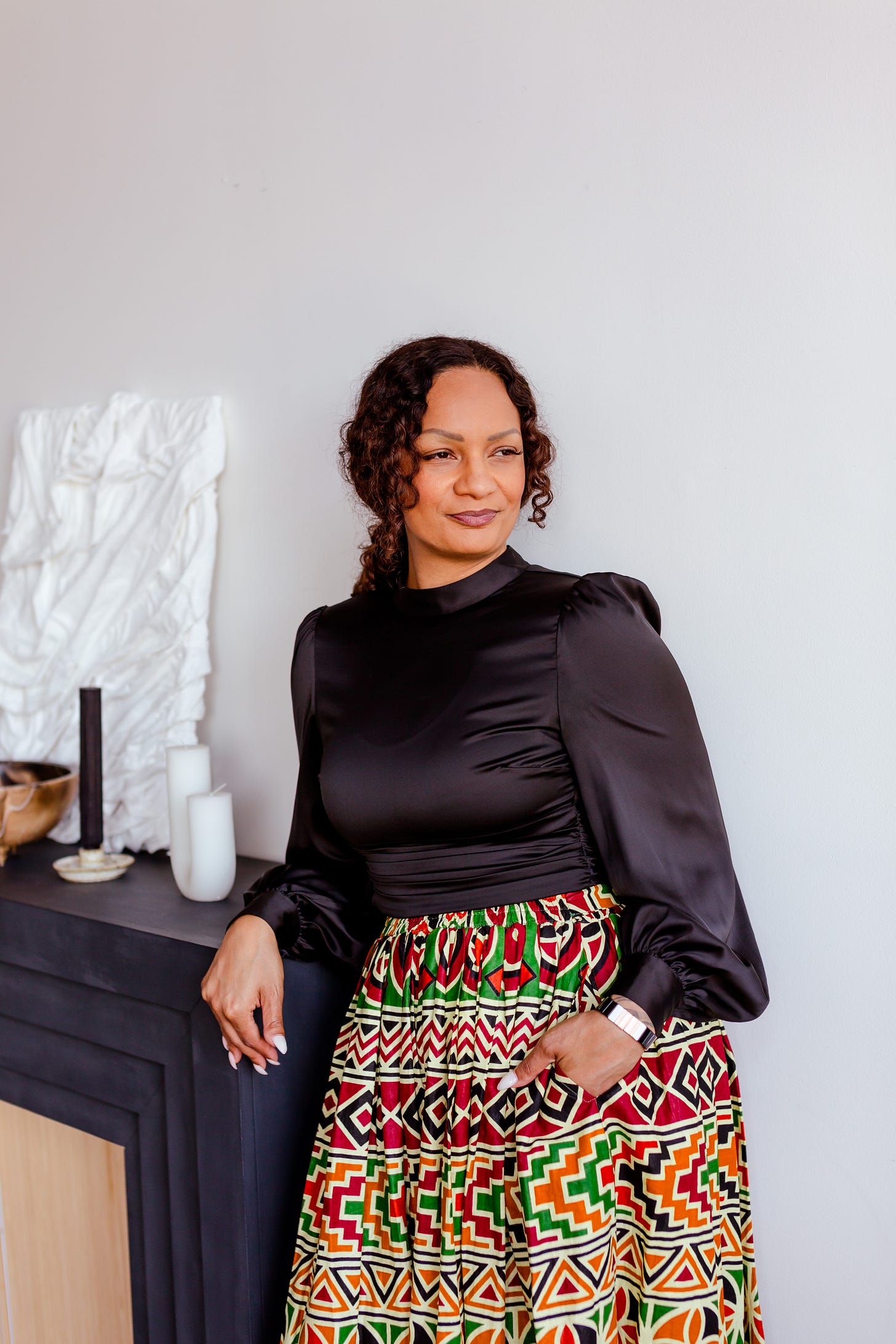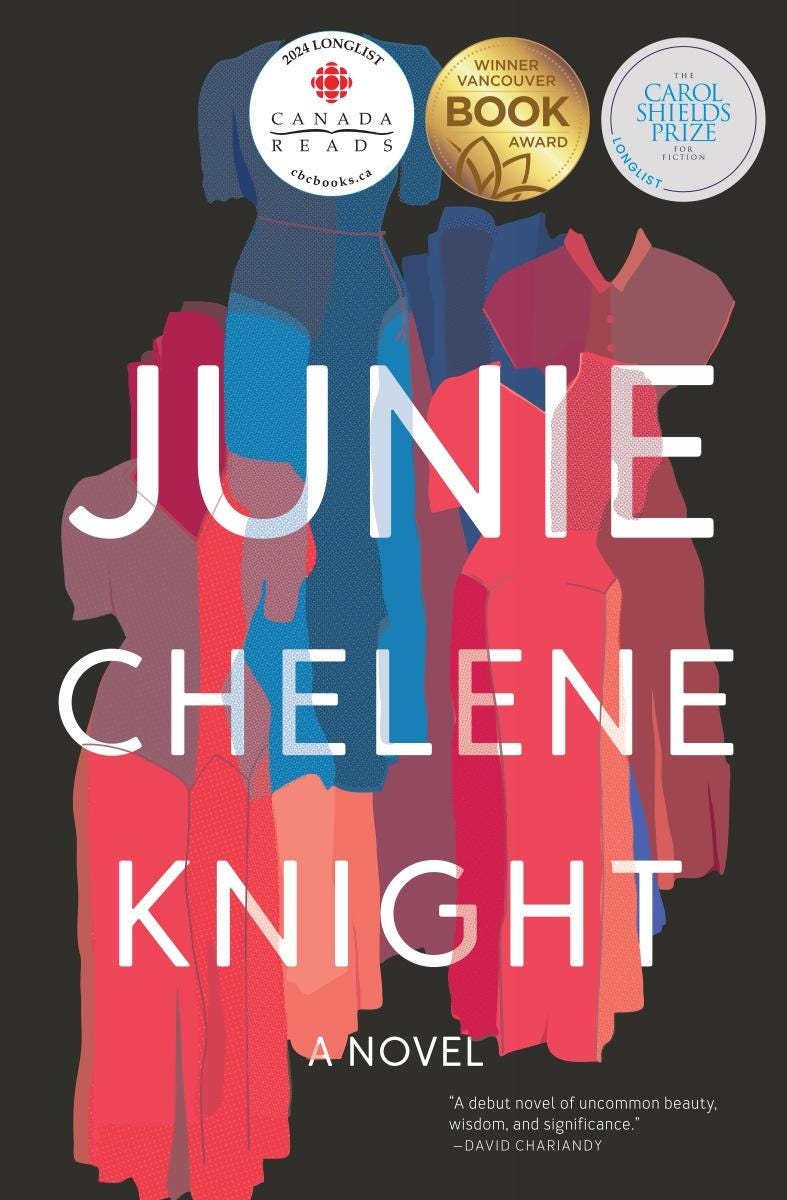CHELENE KNIGHT is the author of Let It Go: Free Yourself From Old Beliefs and Find a New Path to Joy, Braided Skin, and the memoir Dear Current Occupant, winner of the 2018 Vancouver Book Award and longlisted for the George Ryga Award for Social Awareness in Literature. Her novel, Junie, won the 2023 Vancouver Book Award, was longlisted for the inaugural Carol Shields Prize for Fiction, and was a finalist for the Ferro-Grumley Award for LGBTQ fiction. Her essays have appeared in multiple Canadian and American literary journals, plus the Globe and Mail, the Walrus, Writer’s Digest, and the Toronto Star. Her work is anthologized in Making Room, Love Me True, Sustenance, The Summer Book, and Black Writers Matter, winner of the 2020 Saskatchewan Book Award. Her poem, “Welwitschia” won the 2020 CV2 Editor's Choice award. She was shortlisted for PRISM's 2021 short forms contest.
Knight was the previous managing editor at Room magazine, and the previous festival director for the Growing Room Festival in Vancouver and previously worked as a literary agent with the Transatlantic Agency. She has also worked as a professor of poetry at the University of Toronto and the University of British Columbia. She is founder of The Forever Writers Club, a membership for writers focused on creative balance, and is now founder of her own coaching studio, Breathing Space Creative through which she’s launched the Thrive Coaching Program where busy professionals can learn how personal development creates the mindset needed to better manage their energy and make space for all the things they are passionate about.
Her newest book, Safekeeping: A Writer’s Guided Journal for Launching a Book with Love was published by House of Anansi Press and released January 7, 2025.
Describe your writing space. What do you love about it?
I suppose I’ll start by describing my drafting space because, to me, writing isn’t just about putting words on the page—it also includes what I call unstructured play. That creative space we have to nurture before sitting down to draft.
For most of my life, I wrote whenever I could—on breaks at work (usually in the lunchroom) or at home, propped up in bed with my laptop. I never had a dedicated writing space, and honestly, I’ve always liked changing things up. Environment matters, so I would create little writing nooks throughout my apartment, moving from one to the next as inspiration struck.
Now, with more space, I finally have a dedicated studio. It’s bright, filled with natural light, and cozy—designed with all the colors I love. It feels like a space that truly supports my creativity.
How important is it to have ‘a room of one’s own’?
It depends on how you define a room of one’s own. For me, I lean more into the metaphorical—a room of my own isn’t just a physical space but an emotional one, a place to process ideas and the complex feelings tied to writing and being a writer.
This is something many of us creatives who share space think about. And now that I actually have a room of my own in the literal sense, I’ve realized—it’s not enough. I also need emotional distance. That’s why I apply for residencies and seek out opportunities to write and work elsewhere whenever I can. Those shifts in environment help create the mental and emotional space I need to fully immerse myself in the work.
Any rules for when you’re in this ‘space’?
I prefer the word boundaries—and yes, I have plenty! If you see me with my headphones on, that’s your cue to turn around and walk away—haha.
But in all seriousness, I have set work hours, and I’ve had open conversations with my family about the importance of deep focus time. They know that when I’m in that zone, I need uninterrupted space to do my best work.
What is your writing practice like?
Do you have four hours to spare while I break this down? Haha! Honestly, this feels like an impossible question to answer because a writing process—and the practice you build around it—should always be evolving.
I spend about 10 hours a day working with writers on their projects (I run my own creative studio), and sometimes, that work itself counts as part of my unstructured play phase of writing. When it comes to my own drafting, I usually set a clear intention or focus: What do I want to accomplish today? It’s often something small, like wrapping up a scene or doing some bridge writing—the writing outside the writing. The stuff that doesn’t necessarily make it onto the page but helps shape what does, like exploring how my characters make decisions or uncovering deeper layers of their story.
Do you quantify your process by word count or hours spent writing?
Neither. I take a much more holistic approach to writing, one that considers the phase I’m in at any given time.
For me, there are three broad phases: unstructured play (sometimes called invention), drafting (the phase the world tends to value most, likely because this is where the word count grows), and revision—where the real magic happens. Revision is where the sculpting takes place, where a writer is truly defined by their commitment to making something better.
What is your creative process like?
I’d say a creative process is broader than a writing process, so for me, it’s less of a structured process and more of a continuous curiosity. I’m always asking, What will happen if…?—and that question naturally leads me to play with ideas and explore new possibilities.
“Working with other writers and reading books—these two things are not only pivotal to my creative process but also to my experience of being human.”
What is the easiest and most difficult part of the process for you?
Revision comes easily to me because I understand that this is what truly makes a writer. Anyone can draft something—sorry, but it’s true. What sets a writer apart is the deep-seated desire to go back into the mess, to refine and reshape until the work becomes something greater.
That part is easy for me. What’s harder is knowing when to stop—and when it’s time to bring in another set of eyes.
Why do you write? What do you love about writing?
Oof, great question! This is something I ask every writer to reflect on before we work together because it serves as an essential compass for decision-making.
For me, I write to communicate—to give shape to a language I wouldn’t otherwise have access to. But I also write because it’s simply part of who I am.
How do you manage writing with other demands on your time?
I don’t manage to write—that phrasing makes it sound like I’m squeezing it in, and that’s not the narrative I want to tell myself anymore. I write intentionally. I prioritize my writing.
A lot of writers (including an older version of myself too!) who come through my studio initially believe they don’t have time to write, but there are usually two things at play:
They haven’t taken the time to define what writing actually is for them. Writing isn’t just drafting—it’s observing, absorbing the world, and filtering it through your own interpretation before anything even hits the page.
We often spend too much time and energy on things we shouldn’t be doing. It’s not that we don’t have time to write—it’s that we haven’t prioritized it.
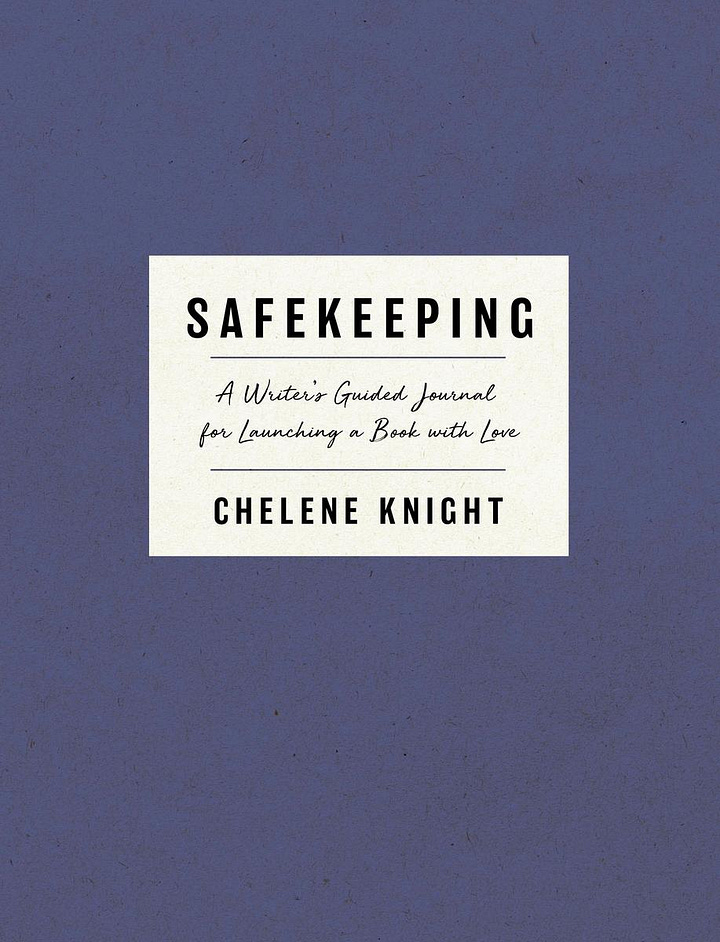
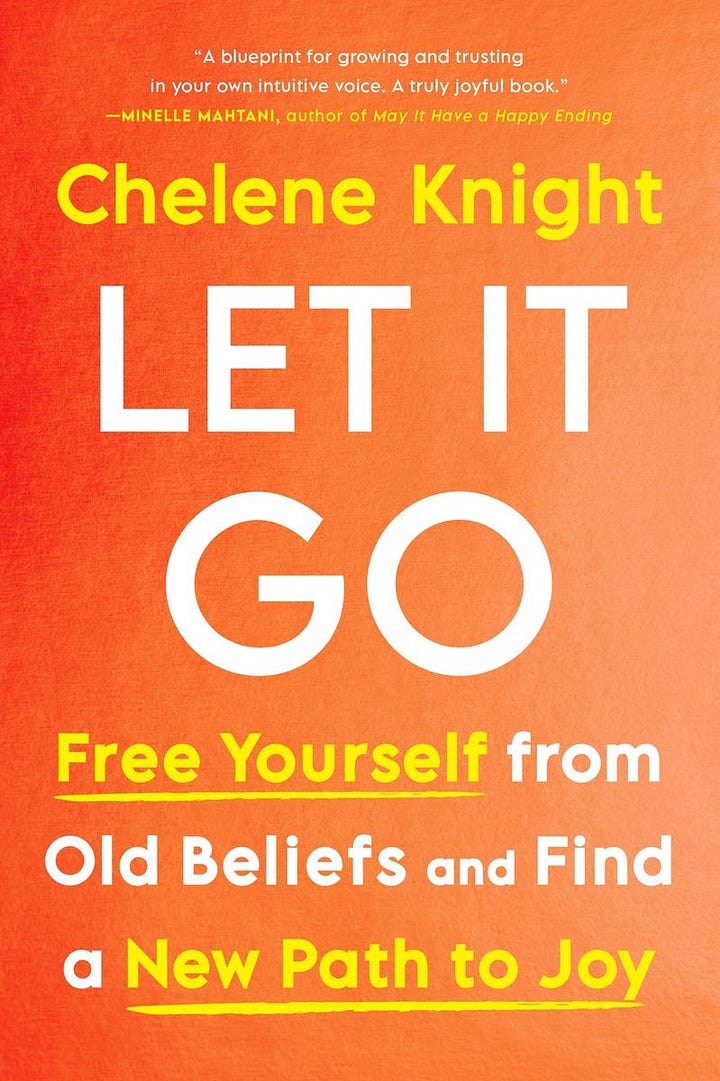
Do you want each book to stand on its own, or are you trying to build a body of work with connections between each book?
Great question! Writers often feel pressured to “stay in their lane”—to stick to one genre and build a consistent readership. But I believe that each project calls for its own unique container. Sometimes that means poetry, sometimes nonfiction, or something else entirely.
I have five books across five different genres. Each one is distinct in what it offers the world, yet they are all connected by a common thread: my deep desire to guide and to seek love and care in the most unexpected places. Some books address this more directly—like my fourth book, Let It Go: Free Yourself from Old Beliefs and Find a New Path to Joy—while in others, I trust my readers to uncover it for themselves. In my novel Junie, for example, love feels impossible, and goodness is elusive. But it’s there, waiting to be found.
Best advice you’ve ever been given.
Move slowly.
What does success look like to you?
Success looks different for me with each book. We have to self-define it—otherwise, we end up measuring ourselves through someone else’s mirror.
Right now, success means waking up and moving at a pace that feels good. It’s about possibility—seeing it, feeling drawn to explore it. For each book, success is tied to what I want it to do in the world and who I hope it reaches. Money is a bonus. But if the money doesn’t come, how do I track success? That’s where my own definition becomes an incredibly powerful tool.
Tell us a few things that would surprise us to learn about you: the person, the writer.
Aside from writing, I studied Culinary Arts and Criminology.
What can books teach us? How do they change us?
It all depends on the mindset we bring into the experience. If we approach it closed-minded—focused on finding flaws or proving something wrong—we limit our perspective. But if we enter with curiosity, the possibilities become endless.
What was a transformative book for you in your life?
There are so many, but The Autobiography of My Mother by Jamaica Kincaid was a revelation for me. It showed me that genre informs genre—that poetry can live inside fiction. That realization became a catalyst for my current body of work and reinforced my belief that as writers, we are multilayered. We can and should stretch ourselves, writing what feels urgent and necessary.
Which authors, living or dead, would you most like to discuss writing with?
Toni Morrison, Audre Lorde, Maya Angelou, bell hooks, David Chariandy (and I have discussed writing with him), Stephen King, Jamaica Kincaid.
Who are your favourite writers writing today?
It's impossible to narrow it down because I am finding new writers every day! But I suppose I can at least say that I love writers who are intentional and inventive when it comes to the narrative structure of their books. Taking care in the emotional journey you are curating for your reader makes me trust you!
If you were a bookseller what 5 books would you hand-sell to readers and why?
All About Love by bell hooks—because before we do anything else, we need to learn what it means to be human.
The Autobiography of My Mother by Jamaica Kincaid—because if you think poetry exists in a silo, you’d be wrong.
Thirsty by Dionne Brand—because there is no poetry without Dionne Brand.
The Bluest Eye by Toni Morrison—because she showed us all what is possible for writers, for storytelling, and for the human experience, even in a world where being Black, female, and brilliant meant drawing an uncomfortable gaze.
And finally, Blood Dazzler by Patricia Smith—because this collection holds everything that makes me want to write books, over and over, for the rest of my life.
What advice do you have for writers?
Stop letting what everyone else is doing dictate your next move. Get comfortable with understanding and learning yourself—because if you don’t do that first, your goalpost will keep shifting, always just out of reach.
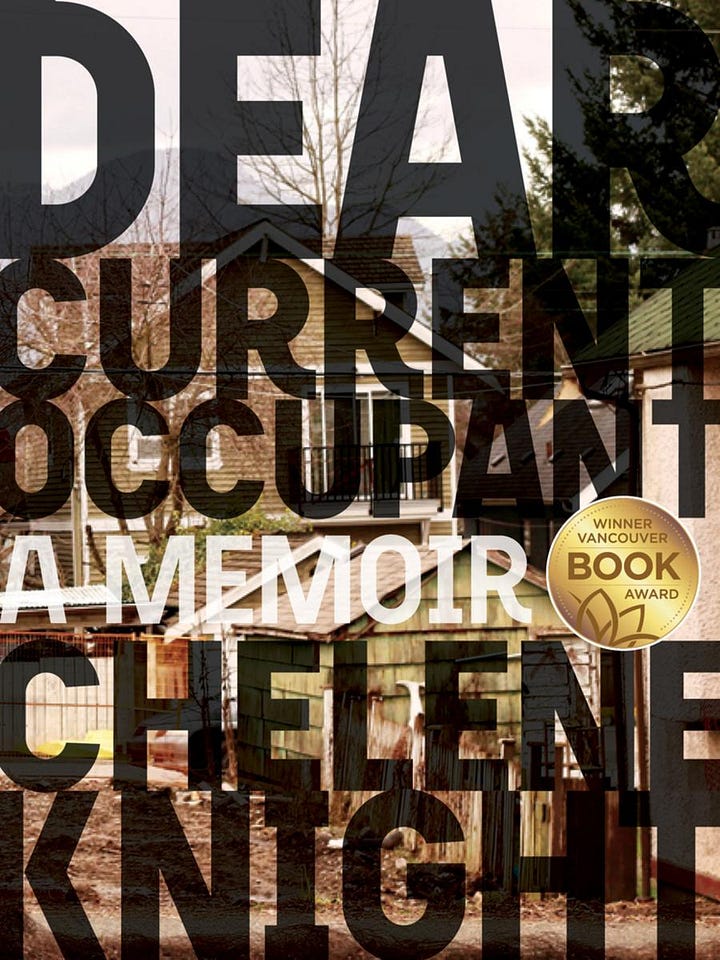
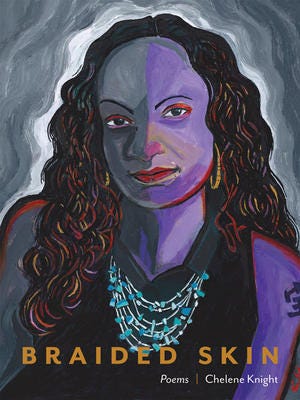
Thank you Chelene.
To find out more about Chelene, her writing, and her creative coaching studio, visit her at cheleneknight.com


